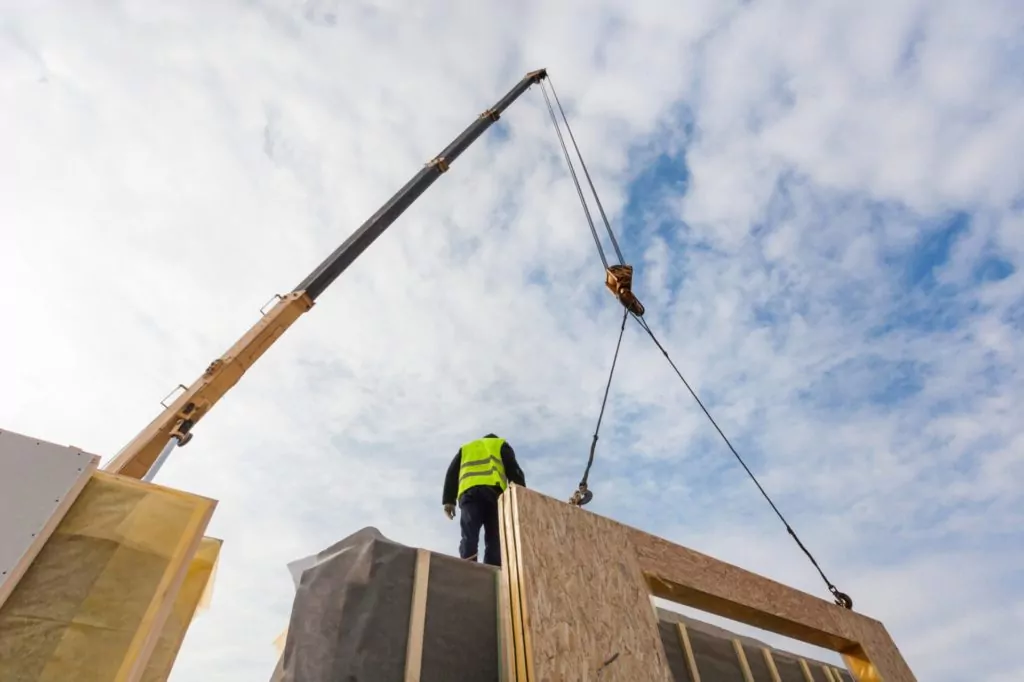
Deep pockets, deep costs – Triathlon Homes v SVDP & Get Living [2024]


The First Tier Tribunal (FTT) recently handed down judgment in Triathlon Homes LLP v Stratford Village Development Partnership & Others [2024] UKFTT 26 (PC), one of the first significant remediation contribution order (RCO) cases to be brought before the FTT under the Building Safety Act 2022 (BSA). The FTT's recent ruling indicates that landlords, management companies, and developers who have the deepest pockets could be forced to foot the bill when it comes to remediating defective premises.
The law
An RCO is a financial order made under section 124 BSA if it is 'just and equitable' to do so and requires a specified corporate body or partnership to make payments to a specified person to meet the costs incurred or to be incurred in remediating relevant building safety defects.
Background
Triathlon Homes LLP (Triathlon), which owns the long leasehold interest in the affordable social housing in five blocks within the East Village of the historic London Olympic Village, made five RCO applications to the FTT. The applications were made against Get Living Plc (Get Living), which, through subsidiaries, owns the freehold interest in the private residences within the blocks, and the Stratford Village Development Partnership (SVDP), the original developer and subsidiary of Get Living (collectively, the respondents).
The applications were made in respect of building safety defects that were identified within the blocks by the management company, EMVL, an entity jointly owned by Triathlon and Get Living. The total cost of the remediation works was estimated to exceed £24.5m.
Why did Triathlon seek RCOs against Get Living and was it 'just and equitable'?
Triathlon sought the RCOs against Get Living because of SVDP's precarious financial standing. SVDP was reliant on Get Living for financial support to prevent SVDP from insolvency. Triathlon submitted that it was just and equitable because Get Living's financial resources would guarantee that the remediation works would be funded and completed without undue delay. However, the respondents argued that Triathlon should be left to pursue contractual and common law remedies against the contractors and consultants or, alternatively, the remedial works should be funded by the Government's Building Safety Fund; a fund of public money allocated to remediate defective premises.
The FTT considered that section 124 BSA provides no guidance on whether it is 'just and equitable' in a particular case to make an order; it is at the discretion of the court having regard to the purpose of the BSA. The FTT held that "primary responsibility for the cost of remediation should fall on the original developer…" because "… Parliament did not intend that the availability of other claims or potential claims should either disqualify an applicant from making a claim for a remediation contribution order…". Additionally, section 124 and the Building Safety (Leaseholder Protections) (Information etc) Regulations 2022 create a hierarchy of liability which does not list the taxpayer as a responsible party; therefore, it is not 'just and equitable' for the public purse to fund the remediation costs if there are corporate entities with sufficient capital to finance remedial works.
The FTT then considered whether an RCO could be made against Get Living. The FTT held that it would be just and equitable for an RCO to be made against Get Living to "ensure that where a development has been carried out by a thinly capitalized or insolvent development company, a wealthy parent company … cannot evade responsibility for meeting the cost of remedying the relevant defects by hiding behind a sperate personality…". Ultimately, the primary purpose of the BSA is to ensure that remediation works are carried out expediently to protect the public.
The FTT's ruling
The FTT awarded Triathlon £16m for remedial works and professional fees, £767,000 for remedial measures (including a waking fire watch and fire evacuation officers) and the costs of installing, servicing and decommissioning fire alarms; and, £1.1m by way of additional costs.
What does this mean for developers, management companies and commercial landlords?
The outcome of Triathlon v SVDP serves as a strong reminder that the primary objective of the BSA is to protect the residents from defective premises. The legislative provisions of the BSA confer a wide power of discretion to the court to determine the appropriate financial awards to meet this objective and each case brought before the court will be decided upon its own facts.
The most likely result is that developers will be laden with the burden of meeting the remediation costs, but in the absence of sufficient financial resources, it will be the corporate entities with the deepest pockets that will be expected to contribute to the remediation cost, irrespective of how proximate they are to the defects or fault. A cascade of liability will flow down the chain (developer to leaseholder) until the final resort remains the Building Safety Fund. The FTT's judgment is clear that corporate entities will not be entitled to hide behind a corporate veil of complex internal governance structures to negate their responsibility. Parent companies or subsidiaries of "relevant parties" may find themselves the subject of an RCO application by an "interested person" if the financial standing of entities in the cascade is brought into question. There is a real possibility that subsidiaries or parent companies will be called upon to fund the remediation costs to achieve the primary objective of the BSA.
What should developers, management companies, and commercial landlords do if faced with an application for an RCO?
The specific approach that should be adopted will be contingent on where a particular entity falls within the cascade of liability. However, the general approach that should be adopted is to:
- Prepare a fully comprehensive assessment of the remedial measures that need to happen and their costs (including risk prevention measures).
- Undertake an assessment of the financial undertaking required to meet the costs of remediation.
- Liaise with other relevant entities who also have a liability under the BSA, using an RCO application if necessary.
Can developers, management companies, and commercial landlords mitigate the risks of RCO applications when acquiring developments?
A corporate entity considering whether to take on the role of commercial landlord or management company of a higher risk building that may now, or in the future, have building safety defects, will need to factor the risk of an RCO application into their acquisition. It may, sometimes, be appropriate to include provisions in the transfer documents to leave the liability of any remedial works under the BSA with the seller. Although this would not prevent an RCO being ordered under the BSA, it could provide some contractual protection though this is reliant on the covenant strength of the selling entity. This was a measure that was considered by the FTT in Triathlon when determining whether SVDP should be absolved of any liability when the company was taken over by a different corporate entity.
Conclusion
Whilst the FTT's ruling will not bind a future tribunal, the judgment will carry significant weight in any future cases that are brought before the FTT. Therefore, it is critical that commercial landlords, management companies, and developers heed the recent ruling and ensure that any changes to the landscape of RCOs are considered in detail.
If you require any advice in relation to the BSA, or any advice following the ruling in Triathlon v SVDP, please contact our real estate dispute resolution team.
This article was written by Kate New, Jane Armitage and Cameron Trotman.










